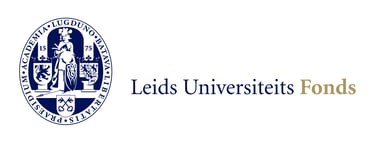Who doesn’t like security?
Jakob van Ooijen
12/5/20247 min read
Apparently, a bunch of people don’t like security at Leiden University. Over the last several months there has been a rise in disgruntled organizations, students, and staff members, who are fed up with the way the university campuses, especially the Wijnhaven campus in the Hague, have become more and more securitized. “When I first stepped into the university it was still kind of normal,” says Michel Vermeer, a student at Leiden and member of both the university council and the Hague City Party, “but this is not about security anymore”. Over the last academic year, more and more security measures have led to students and staff members organizing together to fight back against these measures or at least gain more clarity about them. The newly formed OpenLeiden organization tries to achieve exactly that. Oliver (name changed), a member of the organization who wants to stay anonymous, says the university is not letting students express themselves freely: “The rationale behind this is control. They're very much scared of political stances or political activity.”
The first visible change in security measures started on Monday, the 16th of October last year. The weekend before, the Wijnhaven campus in the Hague was closed because of an “increased security risk”, as the University stated. According to the dean of the humanities faculty, Mark Rutgers, it was an external threat, not from within the academic community. Police investigations had shown that opening the campus was possible the following week. On Monday, students had to show their LU cards to get into the Wijnhaven building as well as other campuses. Whilst this new procedure was not popular among students, there was no big protest regarding this measure. Nonetheless, the climate surrounding the securitization of the campus continued to heat up: As reported by Mare, on the 9th of November, the Students for Palestine organization hosted a teach-in about the genocide in Palestine, calling for a cut of ties with Israeli research institutions by the university. Initially, security personnel tried to break up the protest right away by taking the megaphone the students were using away, however, after a short chase, they stopped and let the teach-in continue. After the teach-in ended, the police waited at the exit of the building and students were asked to identify themselves by security personnel. Protestors who had left the university were followed by security into a Primark. When confronted by the protestors, they did not answer or reveal themselves. On the same day, the university's executive board published a statement strongly condemning the teach-in as it was unannounced, saying it was not notified in advance. Additionally, the statement read: “Inciting hatred, violence, and intolerance will under no circumstances be condoned by the University: we cannot be clearer about this”. Moreover, the executive board claimed that “the character of the demonstration caused students and staff members to feel extremely unsafe.” Oliver, on the other hand, says the university is not engaging with the students: “If you choose to take off the megaphones from people and follow them, harass them outside the university building, that's because the only explanation is control.” The situation was a glimpse into the future of how the frustration of the students with the lack of action by the university concerning its relationship with Israeli research facilities would overspill into more confrontation: On the 16th of May of this year, the Wijnhaven campus was occupied by about 50 masked activists. The university eventually called riot police. However, once the riot police entered the building, protestors had already left. These events are important to contextualize the heated atmosphere at the Wijnhaven campus. The university seemingly could not appease students whilst overstepping boundaries to maintain control on campuses.
On the 24th of August, Het Algemeen Dagblad reported that the university had employed undercover security from external agencies who wore civilian clothing. In the article, students alleged that this undercover security would listen to students' conversations, photograph them, or even look through their bags. Additionally, the article claimed the university had hired student assistants to monitor online activity. Organizations like Privacy First and Amnesty International strongly condemned the measures, calling them “unthinkable” and “tantamount to spying.” At the same time, the Hague City Party published a statement echoing students' concerns. Michel Vermeer recalls finding out about the story: “What's happening inside the university walls is a matter of the university. So, we can’t do anything at the municipality. Because they were chasing students throughout the whole city (on the 9th of November 2023), I could ask questions”. According to Vermeer, finding out more information did not lead to answers but more questions: “You kept hearing weirder and weirder stories, people recording conversations, people getting photographed by people they don't know, inside the university.” The university reacted in a statement a week later: According to them, there had been several occasions of people, who were not part of the university, appearing on campuses. The statement further read that “unauthorized people and those with ill intentions are not supposed to be on campus.” Replying to the media reports the university stated that it was using plain-clothes security guards – at any campus. They had worked for the university a few times. According to the university, because of that fact and the security guards wearing earpieces, students and staff could recognize them. Vermeer disagrees with that claim: “I think it's laughable. If they are recognizable for students, why do it undercover? Just do it in security uniforms.” He adds that if students were not a target of surveillance in the first place, they should have been informed.
The university statement additionally clarified the controversy around bag controls: “These (plain-clothed) security guards do not usually look in bags. At special events, extra measures may need to be taken, such as bag checks.” Both Vermeer and Oliver claim that that is not the case and that they have received multiple stories of students getting their bags checked outside of events or without breaking house rules. When it came to the involvement of governmental organizations, police, or the municipality, the statement read that the university would make its own decisions, but if necessary be in contact with them. However, organizations allege that that is not the full story: The Hague City Party claims that at a meeting in June, a university representative told student organizations that security from external agencies was hired under pressure from governmental parties, including the municipality. As a reaction the party sent questions to the municipality of the Hague, enquiring about its involvement. These questions were answered: “The municipality of the Hague has not discussed nor advised the employment of plain-clothed security or student assistants to gain knowledge with Leiden University.” Later when questioned by the university council on the 19th of October, the board of executives stated that they were not pressured but advised. It does not state by whom.
And that is it. That is all the university had to say about surveillance on their campuses. The executive board states in its meeting with the university council on the 19th of October that it has taken no action at all to inform the academic community since the deployment of undercover security. The frustration of student organizations, staff members, and students is because they do not know: The academic community does not know when undercover security guards have been employed at the campuses, what agency they are from, and if the security measures the university has openly admitted to after public pressure are all the measures that exist. The academic community does not know what threat the security measures supposedly protect them from or where that threat comes from. The academic community does not know how these security measures would protect them against the potential threats to the campus. Oliver: “They always use the reasoning that it is sensitive information. But it is that sensitive information that is becoming everything relative to our condition here on this campus.” Activists and organizations run into other problems as well: Both Vermeer and OpenLeiden amongst others have alleged racial profiling against students of color by the security. But how does one hold people who are at the university undercover accountable? As reported by Mare, when confronted with these allegations in a meeting with student organizations, Koen Caminada, dean of the faculty of Governance and global affairs, replied that he did not want to participate in a discussion of whether there was racial profiling by security guards. He instead warned about the gravity of these accusations: “This does something to people. I have seen strong men and women stand at the porter's lounge with tears in their eyes because they were accused of racial profiling. They reject this allegation.” At the same time, students are not stopping in pointing out these issues: “These are not fun conversations”, says Vermeer, “But the only way to stop this is to keep having these awkward and difficult conversations.” Indeed, students and student organizations are not backing down: Last month, OpenLeiden hosted an event giving a platform to various organizations. Students for Palestine and End Fossil recounted how the university had interfered with their activism. Other organizations like the Afro Student Association again explained how the security measures make the university a hostile environment for black students. At the end of the event, the host warns the executive board, represented by Koen Caminada who is present at the meeting, directly: “If these measures will not stop, civil disobedience will follow. If we have to occupy, we will occupy!” At the same time, Vermeer and the Hague City Party continue to ask questions in the city council about the municipalities’ involvement as well as about the legality of the issue which they highly doubt. Can the university withstand the rising pressure from organizations, the public, and the press? Or will eventually give out more information or even ease up on the security measures? The board of executives indeed has stated that if the situation allows it, security measures could be rolled back. How that would look like and if students would be notified is not clear.
The ongoing activism by students and organizations does not mean they do not like security. It means they want to hold the university accountable for its security measures. And if that is not possible, at least find out what is going on. Understandably, some of the information can not be made public due to security reasons. However, the university does not appear to engage with students or staff at all. When the story broke in August, the university vowed to do better and keep the academic community in the loop. To show both sides, Freedop contacted the university last week. At the time of writing this, nothing has been answered. The participation of students and organizations is necessary to guarantee a safe but also free academic community. There is a genuine interest in participation by organizations like OpenLeiden says Oliver: “There are a lot of different approaches to security on campus, and the approach so far has been the approach of control. But that's something that can change.”
Jakob van Ooijen


